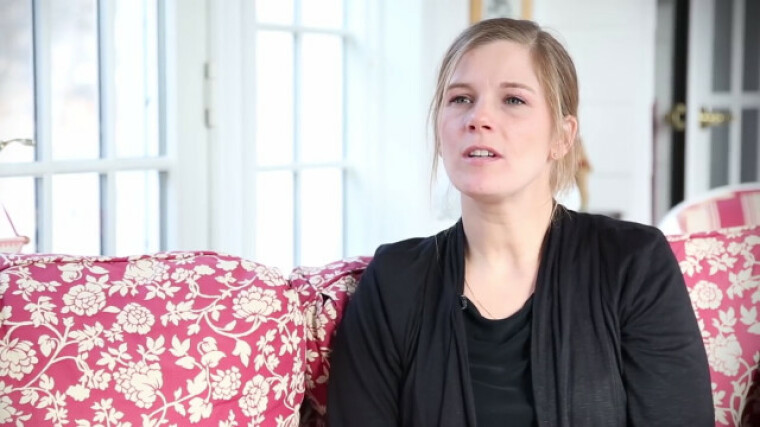Minnesota mom loses lawsuit against health care providers who gave hormone treatment to her son without permission

A federal judge has dismissed a mother's lawsuit against her teenage child along with school officials and health care providers for giving hormonal treatments to her son to help him "transition" to a girl without her consent.
Last November, Annmarie Calgaro filed a lawsuit against St. Louis County, the St. Louis County School District, the county's Health and Human Services (HHS), Fairview Health Services and Park Nicollet Health Services, claiming that the parties had violated her constitutionally protected parental rights by granting her 17-year-old son de-facto emancipation.
Calgaro said that the notice of emancipation that was issued by a legal aid group contained false claims, and she maintained that she had not been contacted to verify any of her son's assertions.
Because of the emancipation notice, she was not allowed to receive any information about her son, who was consequently treated as an adult by the HHS and provided with public services, such as assistance with food, housing and medical services.
The mother sought to obtain her son's medical and educational records from Park Nicollet and his school, but her requests were denied. Furthermore, she was not consulted when the HHS paid Park Nicollet for her son's hormone replacement treatment.
U.S. District Judge Paul Magnusen noted that the teenager was not legally emancipated without a court order and that Calgaro's "parental rights over [her son therefore] remain intact." However, the judge dismissed the lawsuit against the sued parties, saying they "cannot be held liable ... because they did not act under color of state law."
Magnusen argued that the government agencies that were sued could only be held responsible if acting under a specific "policy or custom," which was absent in the case. He explained that Calgaro did not have a legal claim because the entities did not act in accordance with any law or established practice.
Calgaro's lawyer, Erick Kaardal, said that his client is now considering an appeal. He argued that the agencies' actions constituted a form of "administrative emancipation" that violated the parental rights of his client.
"On the legislative front, people on the left and on the right believed that emancipation procedures in Minnesota should be put in statutes and codified," he said, according to The Christian Post. "But until then, it's confusing and the court's decision hasn't cleared up that confusion," he added.
 Christians don't have to affirm transgenderism, but they can’t express that view at work: tribunal
Christians don't have to affirm transgenderism, but they can’t express that view at work: tribunal Archaeology discovery: Medieval Christian prayer beads found on Holy Island
Archaeology discovery: Medieval Christian prayer beads found on Holy Island Presbyterian Church in America votes to leave National Association of Evangelicals
Presbyterian Church in America votes to leave National Association of Evangelicals Over 50 killed in 'vile and satanic' attack at Nigerian church on Pentecost Sunday
Over 50 killed in 'vile and satanic' attack at Nigerian church on Pentecost Sunday Ukrainian Orthodox Church severs ties with Moscow over Patriarch Kirill's support for Putin's war
Ukrainian Orthodox Church severs ties with Moscow over Patriarch Kirill's support for Putin's war Islamic State kills 20 Nigerian Christians as revenge for US airstrike
Islamic State kills 20 Nigerian Christians as revenge for US airstrike Man who served 33 years in prison for murder leads inmates to Christ
Man who served 33 years in prison for murder leads inmates to Christ


 Nigerian student beaten to death, body burned over ‘blasphemous’ WhatsApp message
Nigerian student beaten to death, body burned over ‘blasphemous’ WhatsApp message 'A new low': World reacts after Hong Kong arrests 90-year-old Cardinal Joseph Zen
'A new low': World reacts after Hong Kong arrests 90-year-old Cardinal Joseph Zen Iran sentences Christian man to 10 years in prison for hosting house church worship gathering
Iran sentences Christian man to 10 years in prison for hosting house church worship gathering French Guyana: Pastor shot dead, church set on fire after meeting delegation of Evangelicals
French Guyana: Pastor shot dead, church set on fire after meeting delegation of Evangelicals ‘Talking Jesus’ report finds only 6% of UK adults identify as practicing Christians
‘Talking Jesus’ report finds only 6% of UK adults identify as practicing Christians Mission Eurasia ministry center blown up in Ukraine, hundreds of Bibles destroyed: 'God will provide'
Mission Eurasia ministry center blown up in Ukraine, hundreds of Bibles destroyed: 'God will provide' Church holds service for first time after ISIS desecrated it 8 years ago
Church holds service for first time after ISIS desecrated it 8 years ago Burger King apologizes for 'offensive campaign' using Jesus' words at the Last Supper
Burger King apologizes for 'offensive campaign' using Jesus' words at the Last Supper Uganda: Muslims abduct teacher, burn him inside mosque for praying in Christ’s name
Uganda: Muslims abduct teacher, burn him inside mosque for praying in Christ’s name